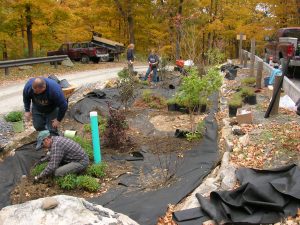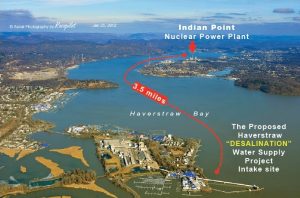Past Environmental Advocacy Work
As one of the pre-eminent environmental organizations in the region on the forefront of preservation and restoration work, Clearwater has been involved in many issues, ranging from short-term engagements to decades-long battles in the fight for a fully restored Hudson River. Get acquainted with our previous work below, including major victories as well as issues we were no longer able to continue working on due to capacity limitations. For more information about Clearwater’s past work, e-mail Jen Benson at jen@clearwater.org.
Major Victories:
Hydrofracking in New York State (BANNED!)
Hydrofracking, or fracking as it’s commonly known, is a method of natural gas extraction that consists of pumping toxic chemicals, sand, and millions of gallons of water into shale formations to break up the shale, freeing the natural gas. A highly industrial process, hydrofracking posed significant risks to the health of nearby communities and local ecosystems. Fracking was proposed in New York State in 2009, kicking off a state-wide grassroots effort to ban fracking in the state. After 5 years of relentless organizing and political pressure, Governor Cuomo announced a statewide ban on hydrofracking in December 2014. Clearwater fought to prevent fracking in New York State, organizing protests, submitting public comments, and educating the public about its risks.
Haverstraw Desalination Plant (DEFEATED)
In 2005, the New York State Public Service Commission (PSC) issued a finding that a desalination plant on Haverstraw Bay was needed to increase Rockland County’s water supply. After significant organizing efforts in opposition to a proposal from a private multinational company that privatizes water for profit, the PSC reversed its finding and directed Suez not to pursue construction. Learn more from the Rockland Water Coalition.
Previous Work:
Danskammer Energy’s Proposal for a New Natural Gas-Fired Power Plant
Danskammer Energy, LLC has proposed and has sought permits to repower their existing facility into a natural gas-fired combined cycle energy facility with a capacity of 600MW, with the ability to burn ultra-low sulfur diesel fuel as backup fuel. The plant, located on the Hudson River, would expand regional fossil fuel infrastructure and cause regional air quality impacts. In October 2021, the New York State Department of Environmental Conservation denied Danskammer required air permits for inconsistencies with New York State’s Climate Leadership and Community Protection Act (CLCPA). The denial was challenged in court, but DEC’s authority was affirmed. As of spring 2023, permit proceedings were on a 1-year pause to allow for regulations within the CLCPA to be defined, specifically what qualifies as “zero-emissions” electricity. Following the 1-year period, Danskammer would either withdraw the application or modify the project and submit a new application. Learn more from the Stop Danskammer Coalition.
Green Cities Program
 The Clearwater Green Cities Program encompassed planning, sustainable development, and watershed protection efforts. Green Cities encompassed some of Clearwater’s early Environmental Justice work, collaborating with community stakeholders to develop climate vulnerability assessments, design and implementation of green infrastructure projects, and watershed protection and planning. This work centered low-income communities of color with the goal of improving climate resilience, and their lived natural environment and drawing attention to the disproportionate and inter-connected ecological and health risks they face. The Green Cities Program yielded the creation of the Rondout Creek Watershed Council, and the Fall Kill Creek Planning Project, and incubated the Hudson River Watershed Alliance, now an independent and staffed non-profit organization. The Green Cities Program was founded in 2009 and concluded in 2015.
The Clearwater Green Cities Program encompassed planning, sustainable development, and watershed protection efforts. Green Cities encompassed some of Clearwater’s early Environmental Justice work, collaborating with community stakeholders to develop climate vulnerability assessments, design and implementation of green infrastructure projects, and watershed protection and planning. This work centered low-income communities of color with the goal of improving climate resilience, and their lived natural environment and drawing attention to the disproportionate and inter-connected ecological and health risks they face. The Green Cities Program yielded the creation of the Rondout Creek Watershed Council, and the Fall Kill Creek Planning Project, and incubated the Hudson River Watershed Alliance, now an independent and staffed non-profit organization. The Green Cities Program was founded in 2009 and concluded in 2015.
Industrialization of Coeymans Waterfront & Creek
Since 2006, the Port of Coeymans and related properties have grown from 120 acres to 665 acres in 2023 and contains a variety of industries, including a cement plant, construction and demolition waste, and more recently the manufacture of offshore wind equipment. Over the last nearly three decades, the facility has received numerous violations for operating and expanding without permits. With funds from the Rose Foundation, Clearwater commissioned two studies exploring the ecological impacts of the continued expansion of development along the Coeymans waterfront and Coeymans Creek, specifically an assessment of water quality in the lower creek (2020), and an assessment of the physico-chemical characteristics of runoff and surface waters (2020) in the lower creek. In January 2023, Clearwater joined the Clean Air Coalition of Coeymans and Ravena in calling on the New York State Department of Environmental Conservation to initiate a Comprehensive Cumulative Impact Analysis of the Port Coeymans and associated industrial park.
In December 2024, Clearwater submitted a letter to the Town of Coeymans Planning Board/Zoning Board of Appeals raising concerns about a hastily proposed zoning exemption to violate residential zoning for industrial use. While Clearwater values the development of renewable energies such as wind power, it must be done thoughtfully and in alignment with local land use policies. To learn more about the industrialization of the Coeymans waterfront at Creek, visit the Clean Air Coalition of Coeymans-Ravena.
Renewable Energy
 Over the years Clearwater has engaged in renewable energy work in a variety of ways, ranging from participating in public comment periods to organizing roundtables and forums to developing a solar pledge and solar siting training. In July 2022, Clearwater submitted comments on the Climate Action Council’s Draft Scoping Plan for the Climate Leadership and Community Protection Act (CLCPA). In fall 2022, Clearwater co-organized another cohort of the Mid-Hudson Regional Solar Mapping Project, which seeks to empower municipalities to use Scenic Hudson’s Solar Mapping Tool to determine good areas for the development of solar and other renewables in their municipality.
Over the years Clearwater has engaged in renewable energy work in a variety of ways, ranging from participating in public comment periods to organizing roundtables and forums to developing a solar pledge and solar siting training. In July 2022, Clearwater submitted comments on the Climate Action Council’s Draft Scoping Plan for the Climate Leadership and Community Protection Act (CLCPA). In fall 2022, Clearwater co-organized another cohort of the Mid-Hudson Regional Solar Mapping Project, which seeks to empower municipalities to use Scenic Hudson’s Solar Mapping Tool to determine good areas for the development of solar and other renewables in their municipality.

